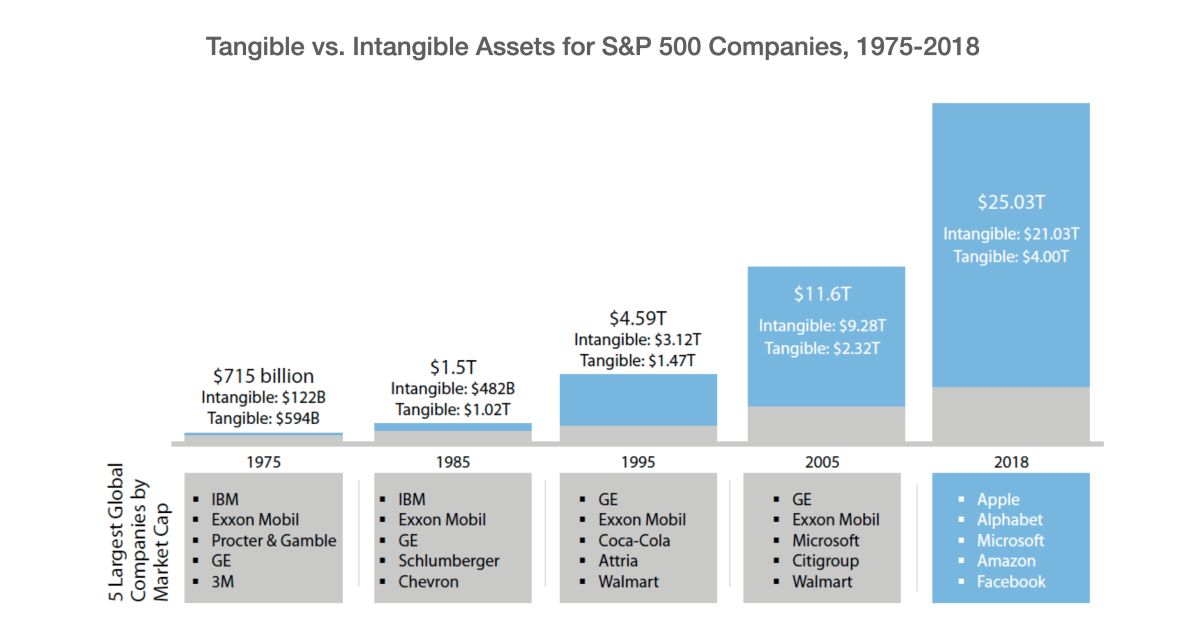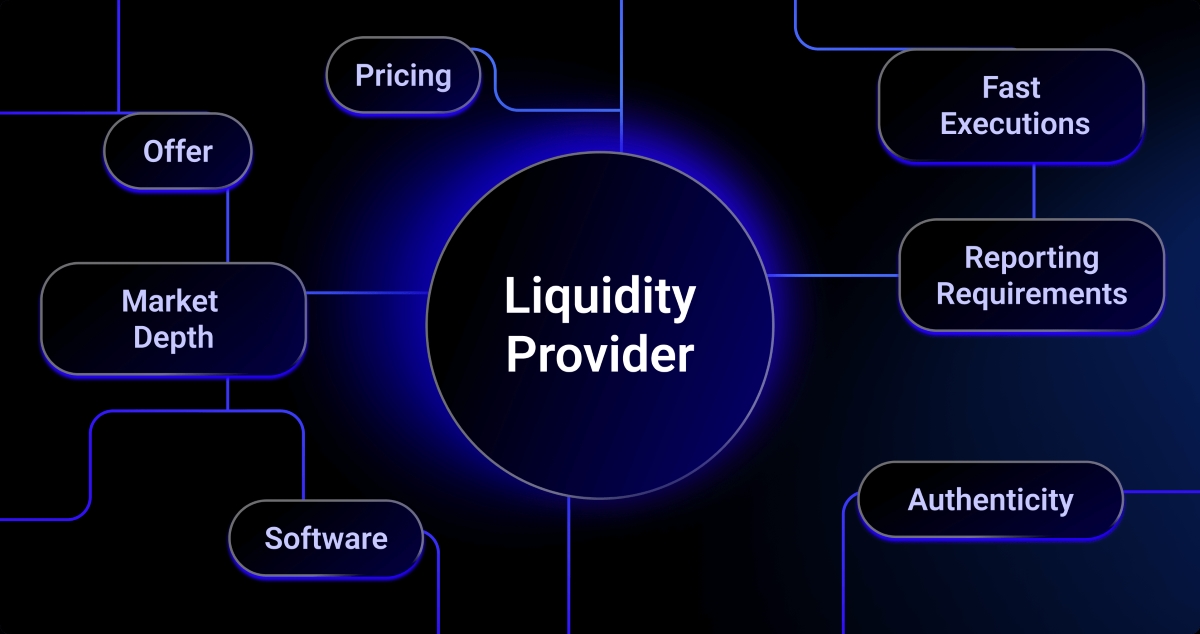Home>Finance>What Is The Biggest Advantage Of Electronic Bookkeeping?


Finance
What Is The Biggest Advantage Of Electronic Bookkeeping?
Modified: December 30, 2023
The biggest advantage of electronic bookkeeping is its ability to streamline financial processes, improving accuracy and efficiency in managing finances. Discover how electronic bookkeeping can transform your finance operations.
(Many of the links in this article redirect to a specific reviewed product. Your purchase of these products through affiliate links helps to generate commission for LiveWell, at no extra cost. Learn more)
Table of Contents
Introduction
In today’s digital age, electronic bookkeeping has become increasingly popular among businesses of all sizes. Gone are the days of cumbersome paper-based processes that required hours of manual data entry and reconciliation. With the advent of electronic bookkeeping, financial management has been revolutionized, offering numerous advantages and benefits.
Electronic bookkeeping involves using software and digital tools to record, track, and manage financial transactions. It leverages technology to streamline and automate the bookkeeping process, providing businesses with a more efficient and accurate way to manage their finances.
Nowadays, businesses are recognizing the significant advantages of electronic bookkeeping compared to traditional methods. From cost savings to improved accuracy and efficiency, electronic bookkeeping offers a wealth of benefits that can positively impact a company’s finances and overall operations. In this article, we will explore the biggest advantages of electronic bookkeeping and why it has become a game-changer for businesses in the financial management landscape.
Cost-saving
One of the biggest advantages of electronic bookkeeping is its ability to save businesses money. Traditional bookkeeping methods often involve the use of paper, printing supplies, and physical storage for documents, which can quickly add up in terms of costs. With electronic bookkeeping, these expenses are significantly reduced or eliminated altogether.
By digitizing financial records and transactions, businesses can save on paper and printing costs. Instead of printing numerous receipts, invoices, and statements, electronic bookkeeping allows for the storage and organization of all these documents in a digital format. This not only reduces paper usage but also frees up physical storage space, reducing the need for filing cabinets and document storage facilities.
In addition, electronic bookkeeping reduces the need for manual data entry, which can be time-consuming and prone to errors. Automated data entry and reconciliation processes, offered by many electronic bookkeeping software solutions, minimize the risk of human error and save businesses from costly mistakes in financial records. This can lead to significant savings, as errors in bookkeeping can result in inaccurate financial reporting, potential fines, and even legal liabilities.
Moreover, electronic bookkeeping allows for real-time monitoring and analysis of financial data, providing businesses with insights into their financial health. This enables proactive financial management and the ability to identify areas of excessive spending or areas where cost-cutting measures can be implemented. By having a clear overview of their finances, businesses can make informed decisions and optimize their budget accordingly.
Overall, the cost-saving aspect of electronic bookkeeping is undeniable. The reduction in paper and printing expenses, the elimination of manual data entry errors, and the ability to monitor finances in real-time can result in substantial savings for businesses.
Accuracy and Efficiency
Another significant advantage of electronic bookkeeping is the improvement in accuracy and efficiency compared to traditional methods. Manual bookkeeping processes are prone to human error, which can lead to discrepancies in financial records and time-consuming efforts to rectify mistakes. Electronic bookkeeping minimizes these risks, ensuring greater accuracy and efficiency in financial management.
With electronic bookkeeping software, financial data can be entered and processed automatically, reducing the reliance on manual data entry. This automation significantly reduces the chances of errors caused by transposing numbers, miscalculations, or misplaced decimals. The software can also perform automatic calculations, ensuring that financial figures are accurate and consistent.
Additionally, electronic bookkeeping software often includes features such as data validation and built-in checks, which help identify inconsistencies and errors in financial records. This allows for timely correction and prevents these errors from impacting subsequent financial reports and analysis.
The efficiency of electronic bookkeeping is evident in its ability to streamline and automate various bookkeeping tasks and processes. With just a few clicks, financial transactions can be recorded, categorized, and reconciled. Reports can be generated instantly, providing key financial insights and eliminating the need for manual compilation and analysis.
Electronic bookkeeping also enables seamless integration with other business systems, such as payment processors and banking platforms. This integration allows for automatic synchronization of financial data, eliminating the need for duplicate entries and reducing the chances of errors and discrepancies.
Moreover, electronic bookkeeping provides businesses with the ability to easily search, retrieve, and analyze financial data. The software often includes robust search and filtering capabilities, making it effortless to locate specific transactions or generate customized reports. This not only saves time but also improves decision-making by providing real-time access to accurate and up-to-date financial information.
In summary, electronic bookkeeping offers businesses improved accuracy and efficiency in managing their finances. With automated data entry, built-in validation checks, and streamlined processes, businesses can rely on more accurate financial records, saving time and resources while minimizing the risk of errors.
Time-saving
Time is a valuable resource in any business, and electronic bookkeeping proves to be a significant time-saver compared to traditional manual methods. With automated processes and streamlined workflows, businesses can save hours of manual labor and focus on other critical areas of their operations.
One of the key time-saving benefits of electronic bookkeeping is the elimination of manual data entry. Rather than inputting financial transactions by hand, electronic bookkeeping software allows for the automatic recording of transactions from multiple sources, such as bank feeds and invoice software. This eliminates the need to manually enter data, reducing the risk of errors and freeing up valuable time for more important tasks.
Additionally, electronic bookkeeping software often includes features that automate tasks like categorization and reconciliation. Transactions can be automatically matched to the correct accounts, reducing the need for manual intervention and ensuring greater accuracy. Reconciliation processes can also be automated, saving time and effort in cross-checking financial records with bank statements.
Furthermore, electronic bookkeeping makes it easier to generate financial reports and statements in a fraction of the time it would take with manual methods. With just a few clicks, businesses can produce comprehensive reports that provide insights into cash flow, profit and loss, balance sheets, and more. These reports can be customized and tailored to specific needs, allowing for quick analysis and decision-making.
In addition to time-saving in day-to-day bookkeeping tasks, electronic bookkeeping also saves time during audits or when dealing with financial compliance requirements. With all financial records stored in a searchable and easily accessible digital format, businesses can provide auditors or regulatory bodies with the necessary information quickly and efficiently. This reduces the time spent gathering physical documents and manually retrieving relevant data.
Overall, the time-saving benefits of electronic bookkeeping are substantial. Automating data entry, categorization, reconciliation, and report generation allows businesses to optimize their workflows and focus on more strategic activities to drive growth and success.
Accessibility and Flexibility
Electronic bookkeeping offers businesses the advantage of accessibility and flexibility in managing their financial records. With traditional methods, accessing and retrieving financial information often involves searching through physical files or contacting third parties. However, electronic bookkeeping allows for instant access to financial data from anywhere, at any time.
Cloud-based electronic bookkeeping solutions have become increasingly popular, providing businesses with the ability to store and access their financial records securely via the internet. This eliminates the need for physical storage space and allows for easy retrieval of financial information from any device with an internet connection.
The accessibility offered by electronic bookkeeping is particularly beneficial for businesses with multiple locations or remote teams. It allows for centralized access to financial data, ensuring consistency and visibility across the entire organization. Authorized users can access the system concurrently, facilitating collaboration and improving communication between team members.
In addition to accessibility, electronic bookkeeping offers flexibility in terms of data input and management. It provides various options for capturing financial information, such as importing data from bank feeds, uploading electronic receipts, or integrating with other business systems. This flexibility enables businesses to choose the methods that suit their needs best, making it easier to streamline processes and ensure data accuracy.
Furthermore, electronic bookkeeping systems are highly customizable, allowing businesses to tailor the software to meet their specific requirements. From creating custom charts of accounts to configuring reporting templates, businesses can adapt the system to their unique financial structure and reporting needs.
Another aspect of flexibility provided by electronic bookkeeping is the ability to easily scale as a business grows. As the volume of financial transactions increases, electronic bookkeeping software can accommodate the increased workload without compromising accuracy or performance. This scalability ensures that businesses can effectively manage their finances, regardless of their size or complexity.
Overall, the accessibility and flexibility offered by electronic bookkeeping empower businesses to manage their financial records efficiently and adapt to changing needs. The ability to access data from anywhere, customize the system, and easily scale as the business grows enhances productivity and facilitates informed decision-making.
Enhanced Data Security
Data security is a critical concern for businesses, especially when it comes to financial information. The use of electronic bookkeeping provides enhanced data security measures compared to traditional paper-based methods.
One of the primary advantages of electronic bookkeeping is the ability to store financial data securely in digital formats. This eliminates the risk of physical documents being damaged, lost, or accessed by unauthorized individuals. With proper security protocols in place, businesses can protect sensitive financial information and ensure confidentiality.
Electronic bookkeeping software often incorporates robust security features, such as data encryption, user access controls, and audit trails. Data encryption ensures that financial information remains confidential and protected from unauthorized access. User access controls enable businesses to restrict system access to authorized personnel only, reducing the risk of data breaches. Audit trails track and monitor user activities within the system, providing a clear record of who accessed the data and what changes were made.
In addition to secure storage, electronic bookkeeping allows businesses to regularly back up their financial data. Regular backups ensure that data is protected from hardware failures, software glitches, or other unforeseen circumstances that could result in data loss. By having multiple copies of their financial records, businesses can quickly restore data in the event of a system failure or disaster.
Furthermore, electronic bookkeeping software often offers automated software updates and security patches. These updates ensure that the software remains up-to-date with the latest security protocols and safeguards against emerging threats. By keeping the software current, businesses can mitigate the risk of security vulnerabilities and stay one step ahead of potential data breaches.
Compliance with regulations and industry standards is also easier to achieve with electronic bookkeeping. Many software solutions are designed to assist businesses in meeting financial reporting requirements and maintaining compliance with relevant laws and regulations. This helps businesses avoid penalties and legal issues that can arise from non-compliance.
In summary, electronic bookkeeping provides enhanced data security compared to traditional methods. Secure digital storage, encryption, access controls, audit trails, regular backups, and compliance features ensure that businesses can protect their financial data, maintain confidentiality, and mitigate the risk of data breaches.
Integration with Other Business Systems
Integration with other business systems is a significant advantage of electronic bookkeeping that enhances efficiency and accuracy in financial management. Electronic bookkeeping software offers seamless integration with various systems, allowing for the smooth flow of data between different departments and functions within a business.
One of the key integration features is the ability to connect electronic bookkeeping with banking platforms. This integration eliminates the need for manual reconciliation of bank transactions. With automated bank feeds, financial transactions such as deposits, withdrawals, and transfers are automatically imported into the electronic bookkeeping system. This ensures that financial records are up-to-date and reconciled accurately, saving time and reducing the risk of errors.
In addition to banking integration, electronic bookkeeping software can integrate with payment processors. This streamlines the process of recording sales and payments, as transactions made through payment gateways can be automatically synchronized with the bookkeeping system. This integration eliminates the need for manual entry and reduces the chances of errors and discrepancies in financial records.
Furthermore, integration with other business systems, such as customer relationship management (CRM) or inventory management software, allows for seamless transfer of relevant data. For example, customer sales data from the CRM system can be automatically synced with the electronic bookkeeping software, providing a holistic view of customer transactions and financial performance. This integration facilitates better tracking of customer invoices, payments, and overall financial interactions.
In a similar manner, integration with inventory management systems ensures accurate tracking of inventory costs and sales. This integration allows for real-time synchronization of inventory data with the bookkeeping system. As stock levels and product costs change, the electronic bookkeeping software updates the financial records accordingly, providing accurate cost of goods sold (COGS) calculations and inventory valuation.
Moreover, integration with electronic expense management systems simplifies the process of recording and categorizing expenses. With automated expense data import, businesses can capture and organize expense transactions seamlessly, eliminating the need for manual data entry. This integration enhances accuracy, reduces the chances of errors, and provides a clear overview of business expenses.
In summary, electronic bookkeeping integration with other business systems optimizes financial management processes. By automating the flow of data between various systems, businesses can ensure accuracy, eliminate manual data entry, and have a comprehensive view of their financial information across different departments and functions.
Automated Financial Reporting
One of the significant advantages of electronic bookkeeping is the ability to generate automated financial reports efficiently. Traditional manual reporting often involves hours of manual compilation and data entry, leaving more room for errors and inconsistencies. With electronic bookkeeping software, businesses can generate accurate and comprehensive financial reports with just a few clicks.
Electronic bookkeeping software offers pre-built report templates that cover a wide range of financial metrics, including profit and loss statements, balance sheets, cash flow statements, and more. These templates can be customized to meet specific reporting requirements and can be generated at any time, providing up-to-date insights into the financial health of the business.
The automation of financial reporting allows businesses to save valuable time and resources. Instead of spending hours assembling data and crunching numbers, electronic bookkeeping software automatically populates the reports with the latest financial information. This real-time reporting capability empowers businesses to make faster, data-driven decisions and respond promptly to market changes and financial trends.
Moreover, electronic bookkeeping software often offers the ability to schedule and automate report generation. Businesses can set up recurring reports to be generated and emailed to specific recipients at designated intervals. This automation streamlines the reporting process and ensures that the relevant stakeholders receive timely and accurate financial information without any manual intervention.
Another advantage of automated financial reporting is the ability to reduce errors and inconsistencies. By eliminating the manual entry and calculation of data, electronic bookkeeping software provides a higher level of accuracy in financial reports. Data integrity is maintained throughout the reporting process, minimizing the risk of errors and ensuring that the reports reflect the true financial state of the business.
Additionally, electronic bookkeeping software allows for easy customization of reports based on specific needs. Key performance indicators (KPIs) and financial metrics can be incorporated into the reports, providing valuable insights into the business’s financial performance. Businesses can track metrics such as sales revenue, gross profit margins, or customer acquisition costs, enabling better monitoring of business objectives and strategies.
In summary, automated financial reporting through electronic bookkeeping software streamlines the process of generating accurate and customized financial reports. The automation of report generation saves time, reduces errors, and provides businesses with real-time insights into their financial performance, empowering informed decision-making.
Improved Decision-Making
Electronic bookkeeping plays a crucial role in improving decision-making within a business. By providing accurate and timely financial information, businesses can make more informed decisions that align with their strategic goals and objectives.
With electronic bookkeeping, financial data is readily available and can be accessed in real-time. This allows businesses to have an up-to-date view of their financial performance, including revenue, expenses, and cash flow. By having this information at their fingertips, businesses can quickly assess their financial health, identify trends, and make data-driven decisions.
Financial analysis becomes more efficient with electronic bookkeeping software. Key financial metrics and ratios can be calculated automatically, giving businesses a clear understanding of their profitability, liquidity, and solvency. This allows for deeper insights into the financial implications of various decisions, such as investment opportunities, pricing strategies, or cost-cutting measures.
Furthermore, electronic bookkeeping provides the ability to generate comprehensive financial reports and forecasts. These reports enable businesses to analyze historical financial performance and project future scenarios. By using these reports, businesses can assess the potential financial impact of different decisions, evaluate the profitability of new projects, or forecast cash flow to optimize financial management.
Improved decision-making is also facilitated by the integration capabilities of electronic bookkeeping software. The ability to integrate with other business systems, such as CRM or inventory management, allows businesses to have a holistic view of their operations. For instance, sales data from the CRM system can be linked with the financial records, providing insights into the profitability of different customer segments or the effectiveness of marketing campaigns.
In addition, electronic bookkeeping supports scenario modeling and “what-if” analysis. By manipulating financial data in the system, businesses can simulate different scenarios and evaluate the potential outcomes. This empowers businesses to make more informed decisions by considering various possibilities and understanding the financial impact before committing resources.
Ultimately, improved decision-making is a result of the accuracy, accessibility, and capability of electronic bookkeeping to provide real-time financial information. Businesses can make informed decisions based on up-to-date insights, financial analysis, comprehensive reports, scenario modeling, and integration with other business systems.
Easy Collaboration and Sharing
Electronic bookkeeping promotes easy collaboration and sharing of financial information within a business, improving communication and efficiency across different teams and stakeholders.
With electronic bookkeeping software, multiple users can have simultaneous access to the system, allowing for collaborative financial management. This facilitates better teamwork and coordination, especially in situations where multiple individuals are involved in financial decision-making or bookkeeping tasks. Teams can work together seamlessly, ensuring that financial data is accurate, up-to-date, and consistent across the organization.
Furthermore, electronic bookkeeping software often offers user permission settings, allowing businesses to control access to financial information. Different levels of access can be assigned to individuals or teams based on their roles and responsibilities. This ensures that sensitive financial data is only accessible to authorized personnel, enhancing security and confidentiality.
Additionally, the sharing of financial information becomes effortless with electronic bookkeeping. Instead of physically printing or distributing paper-based reports, businesses can easily generate digital reports and share them with relevant stakeholders via email or secure file-sharing platforms. This eliminates the need for manual distribution and reduces the risk of data loss or miscommunication.
Moreover, electronic bookkeeping software offers customizable report templates, making it easier to generate and share specific financial information tailored to different audiences. For example, management reports can focus on key performance indicators and strategic metrics, while reports for external stakeholders can emphasize compliance with accounting standards and regulatory requirements.
Integration with communication and collaboration tools further enhances the ease of sharing financial information. Electronic bookkeeping software can be integrated with platforms such as project management software or team messaging tools. This allows teams to have open discussions around financial data, ask questions, share updates, and seek clarification, promoting transparency and collaboration.
Collaboration and sharing are particularly important when working with external parties, such as accountants, auditors, or business advisors. Electronic bookkeeping simplifies the process of sharing financial data with these stakeholders. Authorized users can grant them controlled access to the electronic bookkeeping system or provide them with customized reports that contain the necessary information for their analysis or review.
In summary, electronic bookkeeping enables easy collaboration and sharing of financial information among teams and stakeholders. It promotes efficient teamwork, ensures data accuracy and consistency, enhances security, and simplifies the process of sharing financial reports with relevant parties both internally and externally.
Conclusion
Electronic bookkeeping has become a game-changer in the world of financial management, offering businesses numerous advantages that significantly impact their operations and bottom line. From cost savings to increased accuracy, efficiency, and time-saving capabilities, electronic bookkeeping has revolutionized the way businesses handle their financial records.
The cost-saving aspect of electronic bookkeeping is evident in the reduction of paper usage, printing costs, and the elimination of manual data entry errors. By streamlining and automating processes, businesses can save valuable time and resources that can be redirected towards more strategic activities.
The accuracy and efficiency offered by electronic bookkeeping ensure that businesses have reliable financial records and minimize the risk of errors. With automated data entry, built-in validation checks, and streamlined workflows, financial management becomes more efficient and transparent.
The accessibility and flexibility provided by electronic bookkeeping enable businesses to access financial records anytime, anywhere, and customize the system to meet their specific needs. This enhances collaboration among team members, simplifies data sharing, and facilitates better decision-making based on up-to-date insights.
Another significant advantage of electronic bookkeeping is the enhanced data security it offers. With features such as data encryption, user access controls, regular backups, and compliance capabilities, businesses can protect their financial information and mitigate the risk of data breaches or loss.
Furthermore, electronic bookkeeping enables businesses to automate financial reporting, saving time, improving accuracy, and providing real-time insights into their financial performance. Customizable reports and integration with other systems allow for comprehensive analysis and better decision-making.
In conclusion, electronic bookkeeping has transformed the way businesses manage their finances. It provides cost savings, increased accuracy and efficiency, time-saving capabilities, accessibility and flexibility, enhanced data security, improved decision-making, and streamlined collaboration and sharing of financial information. Implementing electronic bookkeeping systems empowers businesses to make informed financial decisions, optimize their operations, and drive growth in today’s fast-paced digital world.














